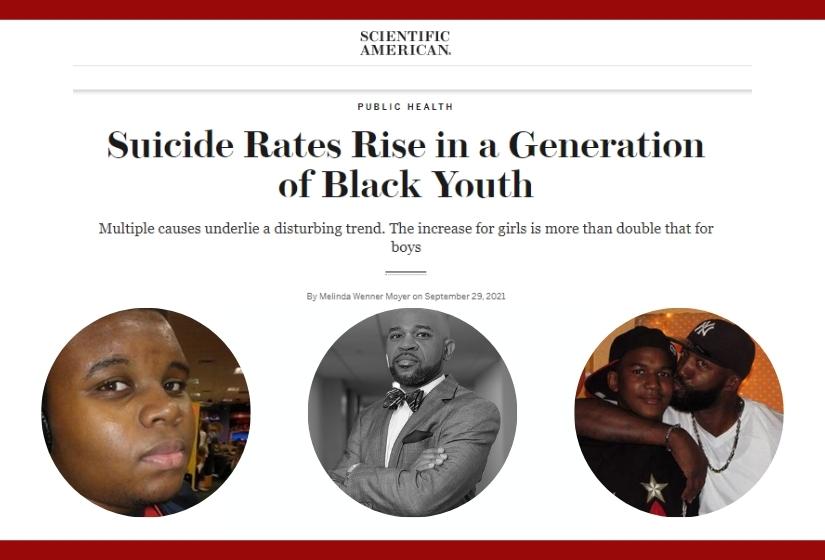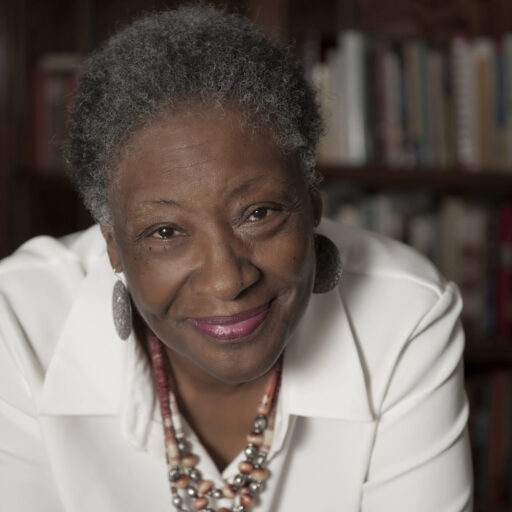
Before Covid, Black youth aged five to twelve were the leading group of young people who committed suicide.
This startling deeply unsettling quote was shared by Dr. Jonathan Shepherd, President of the Black Mental Health Alliance. He shared this as part of his presentation at a symposium “The Mental Health Fallout of COVID-19 sponsored by the Delta Sigma Theta Sorority. Against the backdrop of rising levels of post-Covid anxiety, anger, violence, and division in American society Black youth are suffering a crisis of major proportions. America has become a society that is literally driving us crazy. Youth suicide is increasing among all racial groups but after lagging among Black youth for many years, the current spike is alarming.
From an article in Scientific American
Suicides among Black youth may have increased for a variety of reasons. For one thing, adverse childhood experiences are extremely high in this group, says Michael A. Lindsey, a co-author of the new study and executive director of the McSilver Institute for Poverty Policy and Research at New York University, and such experiences could be increasing. Black youth may also be experiencing more racial discrimination, which has been linked to an increased risk of suicide. And they may be traumatized by headlines about the deaths of Trayvon Martin, Michael Brown, and other young Black individuals.
Psychological barriers to accessing mental health care may provide another explanation for these findings. “There’s a lot of stigma related to mental health treatment that seems to persist in Black communities and families,” Lindsey says, “including the propensity to want to share concerns related to one’s emotional and psychological well-being with family members only—and not share it with professionals.”
It is unclear why rates of suicide are increasing most among Black girls, but Lindsey notes that the discrimination and sexual violence they experience may increase the risk that they will take their own life.
Read To read the full article >>
During a visit to Norfolk State University, I asked a class of 16 students how many of them felt comfortable discussing personal mental health issues with family. Only three raised their hand. Yet all the students raised their hand when I asked who would be willing to seek out a counselor or therapist. So the stigma against mental health care is eroding among Black Millennials.
I recently attended a funeral for an 80-year-old family member who died of cancer. In my remarks spoke about the ways in which she had cared for her mental and physical health during her long life, how she was strong and willing to be vulnerable and prioritized self-care. I shared that even as she was ill she thanked me for writing The Strong Black Woman. Numerous members of those gathered approached me afterward and shared their concerns about mental and physical health and their desire to be more proactive about their health or the health of loved ones.
Don’t’ let the statistics fool you. Or depress you. Black people want to live and we are gradually moving away from the attitudes, often well-earned, of distrust and suspicion of the mental and physical healthcare industrial complex.
I see growing evidence of this. Anger Apathy and Anxiety have made America a nation suffering a psychotic break and we have to do all we can to mend.

Marita Golden is the author of over 20 works of fiction and nonfiction. She is Co-founder and President Emerita of the Zora Neale Hurston/ Richard Wright Foundation. As a teacher of writing, she has served as a member of the faculties of the MFA Graduate Creative Writing Programs at George Mason University and Virginia Commonwealth University and served as a Distinguished Visiting Writer in the MA Creative Writing Program at John Hopkins University, and at the University of the District of Columbia. She has taught writing workshops nationally and internationally to a variety of constituencies and is a writing coach, workshop presenter, and literary consultant.



